Alabama labor, conservation groups oppose EPA rollback of clean car standards

Labor union representatives and conservation group leaders are voicing their concerns about President Donald Trump‘s U.S. Environmental Protection Agency (EPA) efforts to rollback clean car standards. “At the pump, we are paying more and more for gasoline, the clean car standards provide the mechanism to move towards the higher miles per gallon vehicle in our country,” Mark Bentley with Alabama Clean Fuels Coalition, told WHNT-19. The standards, finalized in 2012, would have required companies to target a goal of 54.5 miles per gallon across their fleets by 2025, will annual year-over-year improvement. The vehicles would have needed to have a range between 31 and 61 miles per gallon, depending on the type and size. The federal government is proposing freezing the standards for six years at the 2020 target of 39 miles per gallon. According to WHNT-19, the Union of Concerned Scientists says Alabama has saved $600 million because of the clean car standards. “What happens is you won’t get the benefit of the higher miles per gallon. You will be paying more at the pump. You will be visiting the pump more often for fuel,” Bentley added. Meanwhile, the Union of Concerned Scientist say the clean car standards could create jobs in the state. Alabama’s GASP group claims the Yellowhammer State could expect 11,900 new jobs by 2030 as a result of the standards. These leaders are traveling the state to promote clean car standards in hopes of influencing local elected officials to support reinstating them.
House seat suddenly in play after Trump backer’s indictment
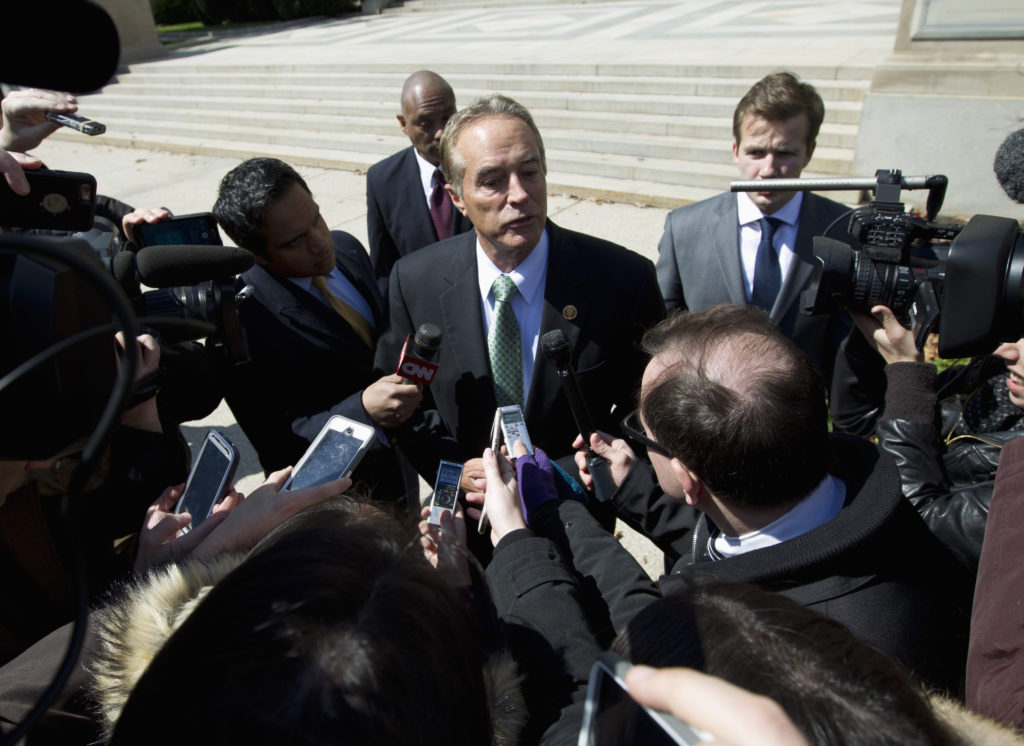
New York’s most conservative congressional district is unexpectedly in play as Republican incumbent Chris Collins, one of President Donald Trump‘s first supporters, fights insider trading charges while seeking re-election. Republican leaders in a western New York district that Trump swept overwhelmingly in 2016 are counting on party and presidential loyalty, even if it means voting for someone that even they wanted off the ballot. “This district is Trump country, and it will continue to be,” said Erie County Republican Party Chairman Nicholas Langworthy. “It’s a conservative Republican district, and I expect that when the dust settles on election night it will re-elect a conservative Republican to the seat.” Democratic challenger Nate McMurray is still the underdog but says his volunteers and donations have surged since Collins was charged in August, and his crowds have gone from handfuls to hundreds. “It’s like an avalanche that started out with a little snowball that’s rolling downhill and getting bigger and bigger every day,” McMurray, a Grand Island town supervisor, said recently to a roomful of supporters. They included Tom Perez, the Democratic National Committee chairman, who dropped in to drum up enthusiasm in what had been a little-watched race. Once considered a sure win for Republicans, Real Clear Politics now lists the race as a “toss-up,” and the Cook Political Report in mid-September moved the seat from “likely Republican” to merely “lean Republican.” McMurray said this week his internal polling showed the race to be a dead heat. With Democrats forecast to make gains in the House, for some voters in the Republican-advantaged district, the decision will be more about keeping the challenger out than Collins in, analysts said. “The old phrase of ‘all politics is local,’ the Tip O’Neill statement? These local races are not so local anymore,” American University political science professor Jan Leighley said. Collins, with a reported net worth of $44 million one of the wealthiest members of Congress, is accused of illegally leaking confidential information about a biopharmaceutical company to his son and the father of his son’s fiancée that allowed them to avoid hundreds of thousands of dollars in stock losses. The most serious charge carries a potential prison term of up to 20 years. If he wins and is later convicted and forced to resign, a special election would be held. The 68-year-old Collins pleaded not guilty and initially vowed to continue his re-election campaign. He then agreed to be removed from the ballot “in the best interests of the constituents,” only to reverse course again and announce he would stay on the ballot — even as party leaders who had spent weeks exploring legal maneuvers to remove him were preparing to announce a replacement. “The stakes are too high to allow the radical left to take control of this seat in Congress,” Collins said in a Sept. 19 statement. Collins is one of two Republican congressmen running for re-election while under indictment. Rep. Duncan Hunter, of California, has pleaded not guilty to spending campaign funds for personal expenses. Hunter and Collins were the first two Republicans to endorse Trump in the Republican presidential primaries, and their indictments drew a critical Sept. 3 tweet from Trump aimed at Attorney General Jeff Sessions. Tweeted Trump: “Two easy wins now in doubt because there is not enough time.” Since entering the race, Collins has limited his personal appearances largely to friendly gatherings like the Republican Women’s Autumn Brunch and the Newstead GOP Sportsman Extravaganza. He declined to be interviewed by The Associated Press. “A lot of folks just happy that I’m back in the race,” he told WIVB this week. “They know what’s at stake. … Every seat matters. As you read the pundits now, it’s going to be a very close election to see who is going to be in the majority of the House come next year.” Collins, a businessman who made is money by buying distressed businesses and turning them around, proudly carries an A+ rating from the National Rifle Association and cites among his priorities never increasing entitlement programs, reforming the tax code and balancing the federal budget in 10 years. He has been on the air with negative television ads, including one that was assailed by critics as racist. It showed McMurray speaking Korean as a portrait of North Korean leader Kim Jong-Un floated in the background and captions falsely implied McMurray was talking about sending American jobs to Asia. McMurray, a lawyer, studied the development of constitutional democracy in South Korea as a Fulbright scholar. His campaign has focused on health care for all, protecting Social Security, the environment and strengthening infrastructure. He said he supports gun rights but also universal background checks and a ban on bump stocks. Out in the district, 23-year-old line cook Brett Schuman said the allegations against Collins were enough to sway him. “When there’s anything happening, criminal or otherwise, I’m going to defer to the other party.” Retired engineer Don Lloyd said he liked McMurray’s background and education but would still vote for Collins, if only to help Republicans keep control of the House and preserve Trump’s agenda. Democrats need a net gain of 23 seats to take control of the chamber. “Let’s face it, the election isn’t about Chris Collins — it’s about Trump,” said Lloyd, 70. “So hold your nose, I guess.” Republished with permission from the Associated Press.
Perhaps Alabama’s most transparent leader, John Merrill, allows you to digitally stalk him
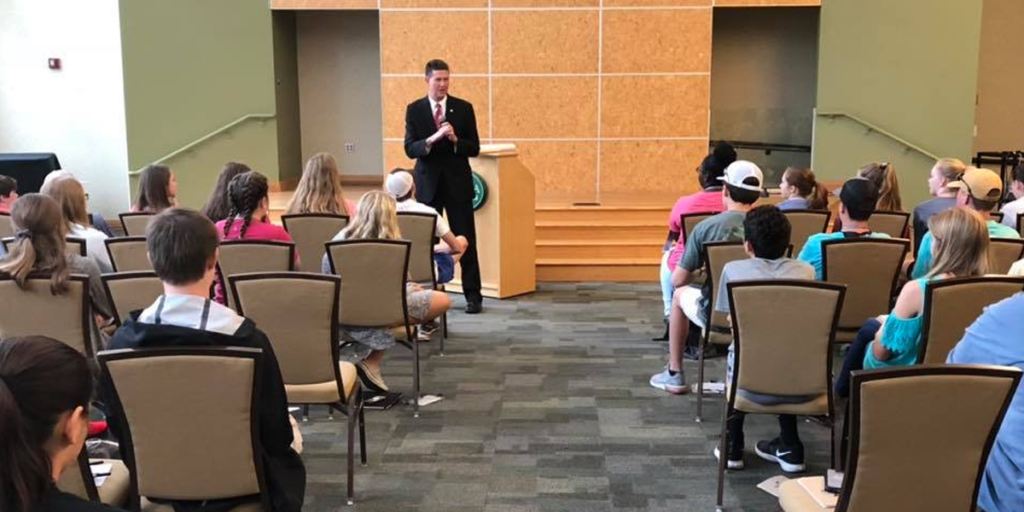
When it comes to connecting with the people of Alabama, there’s one statewide leader who goes above and beyond the call of duty to ensure he is as transparent and accessible as possible. The Alabama Secretary of State, John Merrill, not only fulfills his duties of office, but he also goes to great lengths to connect with those he serve. The proof? His Facebook page. On a daily basis Merrill takes to the social media platform to post public snaps of everyone he’s meeting with in the State Capitol and at events across the state. His daily updates are not only transparent, but seem to serve as a digital diary of his efforts in the Secretary of State’s office that he welcomes constituents to follow along. Here’s a look at this past week: Saturday Sunday Monday Tuesday Wednesday Thursday Friday The office of Secretary of State The Alabama Secretary of State is the Chief Clerk of the state and acts as the primary custodian of important state records. These records include business registrations, legislative acts, land records, campaign finance records, trademarks, and more. In addition to keeping the Great Seal of the State, the Secretary of State is the state’s Chief Election Officer, responsible for running and recording the results of all state elections.
Alabama Department of Revenue offers tax relief to Hurricane Michael victims
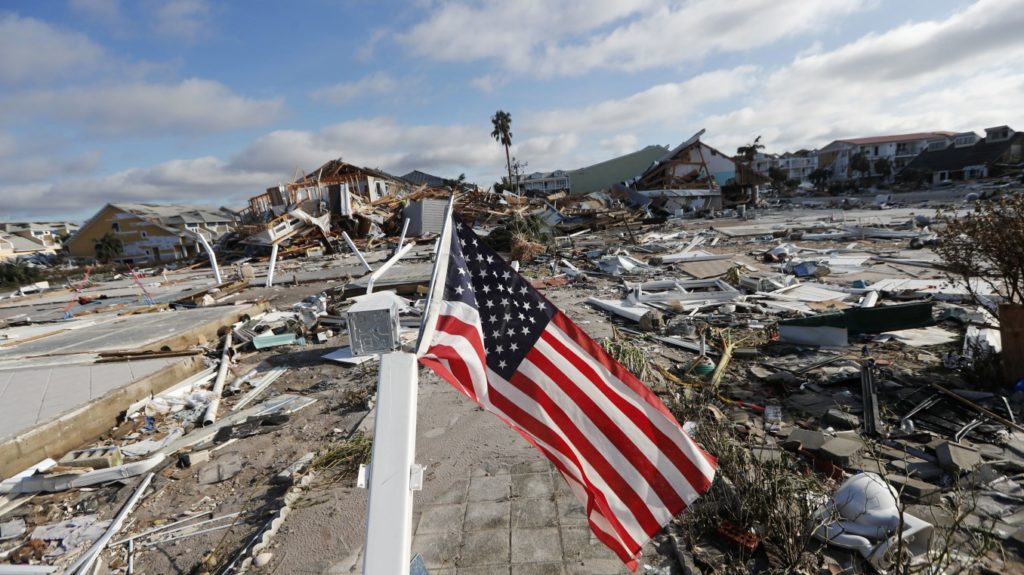
The Alabama Department of Revenue (ADOR) has acted quickly in announcing tax relief for Hurricane Michael victims. The tax relief measures will mirror IRS measures in the same declared disaster areas. “Our thoughts and good wishes continue to be with the millions of people who have been affected by recent disastrous storms, including Hurricane Michael,” said Revenue Commissioner Vernon Barnett. “The Alabama Department of Revenue is offering this tax relief to hopefully help ease some of the burden on victims as they begin the process of rebuilding.” ADOR will grant filing extensions to taxpayers directly affected by Hurricane Michael. Alabama taxpayers residing in areas designated as disaster areas by the federal government have until Jan. 31, 2019, to file tax returns due on or after Oct. 10, 2018, and before Jan. 31, 2019. Penalty relief will be provided during the extension period. Taxpayers seeking this Alabama tax relief should write “Michael Relief – 2018” in red ink on any state paper return/report which relies on this filing extension relief. Affected taxpayers filing electronically should contact ADOR for filing guidance. Taxpayers may contact the following ADOR offices by telephone: Individual income tax: 334-353-0602 Corporate income tax: 334-242-1200 Pass-through entities: 334-242-1033 Sales and use tax: 334-242-1490 Business privilege tax: 334-353-7923 Withholding tax: 334-242-1300 This relief will apply to eligible localities as listed in the IRS announcement, when available, at https://www.irs.gov/newsroom/tax-relief-in-disaster-situations. Taxpayers in localities added later to the disaster area, including those in other states, will automatically receive the same filing and payment relief. In addition, taxpayers in areas not specifically designated as disaster areas who encounter difficulty filing on time due to weather-related circumstances associated with Hurricane Michael may be eligible to request a waiver of late-filing and late-payment penalties after providing appropriate documentation to ADOR.
Martha Roby: Rebuilding together

Hurricane Michael, the third most powerful hurricane to ever make landfall on the United States mainland, ravaged areas of Alabama, Florida, and Georgia on October 10th. While only early estimates are available at this point in time, it has been reported that more than 650,000 homes and businesses across the Southeast lost power, and 60,000 of those are in Alabama. Thus far, the Coast Guard says it has rescued 30 people, mostly from badly damaged homes. Hundreds of families lost everything, and it has been confirmed that at least half a dozen people were killed. While Hurricane Michael appears to have done its worst in Panama City, Florida, and the nearby areas, Barbour, Dale, Henry, Geneva, and Houston Counties in our district were also impacted. It could potentially take days, or even weeks, before we know the full scale of the damage, but we do know that Hurricane Michael is the most powerful storm to ever hit Houston County according to recorded history. According to The Dothan Eagle, Dothan Fire Chief Larry Williams said crew members performed 22 rescues during the storm. We’ve not yet received official word on how many injuries there are, but we have been told there are several, some of which are severe. Crews across the Wiregrass remain in search and rescue mode to date. Our farmers face significant troubles as well. While the full scale of the damage to local agriculture is still being assessed, Hurricane Michael dealt a devastating blow to cotton farmers in the area. Earlier this year, I had the opportunity to view some of the cotton crop firsthand, and it was clear that our cotton farmers were set up to have a very good yield this year. Wiregrass peanut farmers are waiting to see the full extent of devastation to their crop, too. As our cotton farmers, peanut farmers, and farmers of other commodities in our district learn more about the impact of this storm on their crops, my office is eager to assist in any way and will continue to work with the U.S. Department of Agriculture on assistance that may be available to impacted farms. Agriculture and its related industries are the engine of our economy in Alabama’s Second District, and this catastrophic storm has unfortunately resulted in an economic setback. Hurricane Michael was an unprecedented disaster for our district and the Southeast. While the threat of severe weather is no longer hovering over us, those who live in the Wiregrass – and not to mention the people across the Florida Panhandle and parts of Georgia – are facing terrible damage. My office has been engaged with FEMA, the Alabama Emergency Management Agency, the American Red Cross, and others throughout this difficult time. We stand ready to assist in whatever ways we can as we work through the aftermath of this storm. I encourage anyone who lives in Alabama’s Second District to contact my office for help, and we will do all that we can to provide assistance and point you in the right direction. We are committed to ensuring no one endures this time of rebuilding alone. Above all, please join me in praying for all those impacted by Hurricane Michael. Some families have lost their loved ones, their homes, and their livelihoods. I encourage everyone to help out with relief efforts in whatever way you can. We should all be deeply thankful for the first responders and all those working to repair the damage. This is a very, very trying and difficult time for so many people across the Southeast, and we will get through it together. ••• Martha Roby represents Alabama’s Second Congressional District. She lives in Montgomery, Alabama, with her husband Riley and their two children.
Terri Sewell calls Georgia voter verification law ‘voter suppression’
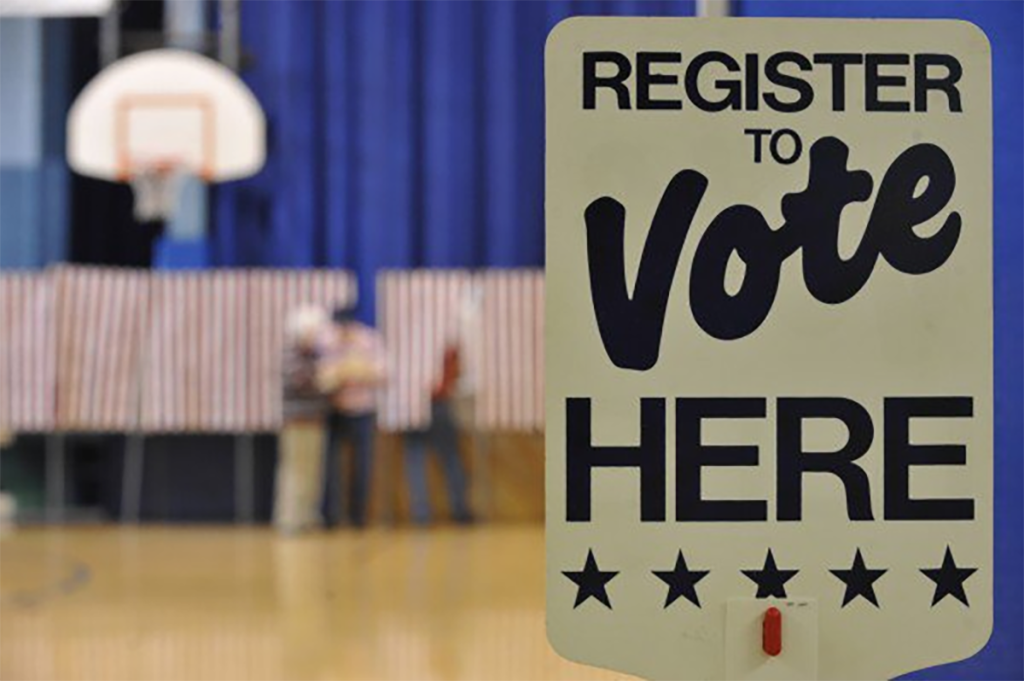
More than 6.9 million Georgians are registered to vote in next month’s general election, the Georgia Secretary of State’s Office reported Wednesday. Secretary of State Brian Kemp announced Georgia shattered the all-time voter registration record with over 6,915,000 active and inactive voters on the rolls. Kemp expects the total number to break 7,000,000 voters at any moment as counties continue to process forms received by yesterday’s deadline. “Despite what you hear or read, the numbers are clear. While outside agitators disparage this office and falsely attack us, we have kept our heads down and remained focused on ensuring secure, accessible, and fair elections for all voters. The fact is that it has never been easier to register to vote and get engaged in the electoral process in Georgia, and we are incredibly proud to report this new record.” But despite the record numbers, some are still frustrated with the state’s voter registration process as there are currently more than 53,000 voter registration applications that were not immediately approved because they failed to clear the state’s “exact match” standard. According to Georgia law, if a registering voter’s information on a their registration form does not match the information in a federal or state database, the applicant’s status is marked “pending.” From there, applicants have 26 months to provide up-to-date information. They are also able to present the information at the polls and be eligible to vote a regular ballot on the spot Alabama 7th District U.S. Rep. Terri Sewell for one, is calling this “voter suppression.” “This voter suppression needs to stop. Voters are supposed to choose their lawmakers, not the other way around,” Sewell posted on Facebook. Two groups, the Lawyers’ Committee and the Campaign Legal Center, have filed a lawsuit against Kemp regarding the voter verification practice, alleging that the exact match system violates the Voting Rights Act, the National Voter Registration Act, and the U.S. Constitution. It remains to be seen what will happen to the more than 53,000 applications in waiting. The voter registration deadline in Georgia was Tuesday, October 9.
Kanye West delivers jaw-dropping performance in Oval Office
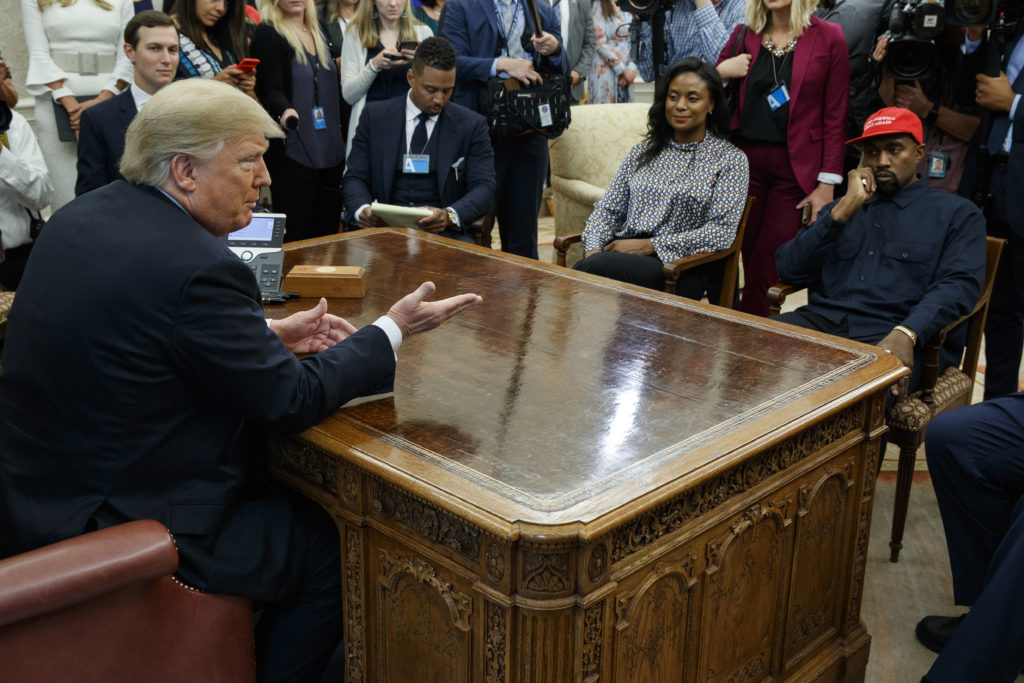
Live from the Oval Office, it’s Kanye West with a jaw-dropping performance. The rapper didn’t rap. But, seated across from President Donald Trump at the Resolute Desk, the musician delivered a rambling, multipart monologue Thursday that touched on social issues, hydrogen planes, mental health, endorsement deals, politics and oh so much more. Seizing the spotlight from the typically center-stage president, West dropped the F-word, floated policy proposals and even went in for a hug. “They tried to scare me to not wear this hat,” West said of his red “Make America Great Again” cap. But, he said, “This hat, it gives me power in a way.” “You made a Superman cape for me,” he told Trump. It was a surreal scene even by the standards of a nonconventional White House. The unlikely allies spoke to reporters before a closed-door lunch that had been billed as a forum to discuss policy issues including manufacturing, gangs, prison reform and violence in Chicago, where West grew up. Spectators at the show included Trump’s son-in-law and top adviser, Jared Kushner, former NFL star Jim Brown, the attorney for a gang leader serving time in federal prison, and a gaggle of reporters. During one pause, Trump seemed to acknowledge the oddness of the moment, saying, “That was quite something.” West’s mental health has been a question of speculation since he was hospitalized in 2016. In a bizarre performance last month on “Saturday Night Live” he delivered an unscripted pro-Trump message after the credits rolled. Addressing the topic Thursday, West said he had at one point been diagnosed with bipolar disorder, but was later told by a neuropsychologist he’d been misdiagnosed. “So he said that I actually wasn’t bipolar; I had sleep deprivation, which could cause dementia 10 to 20 years from now, where I wouldn’t even remember my son’s name,” he said. The conversation began with an exchange on North Korea among Trump, Brown and West. Trump said the region was headed for war before he took over, and West commended him for stopping it. Brown said he liked North Korea; Trump agreed. From there, West discussed prison reform and violence in inner-city Chicago. He brought up Larry Hoover, the leader of the Gangster Disciples who is serving a life sentence for murder, claiming: “The reason why they imprisoned him is because he started doing positive for the community. He started showing that he actually had power, he wasn’t just one of a monolithic voice, that he could wrap people around.” West said he “loved Hillary” Clinton, Trump’s 2016 Democratic rival, because he loves everyone, but said he connected with Trump’s “male energy.” He also criticized the 13th Amendment, which abolished slavery, calling it a “trap door.” Holding out his phone, West showed Trump a picture of a hydrogen-powered plane that he thought should replace Air Force One. “This right here is the iPlane 1,” he said. “This is what our president should be flying.” Added West: “If he don’t look good, we don’t look good. This is our president. He has to be the freshest, the flyest” and have “the flyest planes.” West also had a sartorial suggestion for Trump, proposing a hat that says just “Make America Great” — dropping the “again.” At the end of West’s lengthy, sometimes-hard-to-follow dialogue, even Trump seemed at a loss. “I tell you what: That was pretty impressive,” the president said. “It was from the soul,” West replied. “I just channeled it.” West later told reporters of his verbal stylings: “You are tasting a fine wine that has multiple notes to it. You better play 4D chess with me. … It’s complex.” Taking questions from reporters, the rapper also voiced concern about stop-and-frisk policing. Trump this week called on Chicago to embrace the tactic, which allowed police to detain, question and search civilians without probable cause, though it was deemed unconstitutional in New York City because of its overwhelming impact on minority residents. Trump said they’d discuss the matter and he’d keep an open mind. Asked about his comments in 2005 that President George W. Bush didn’t “care about black people” after Hurricane Katrina, West said that “We need to care about all people” and that he “was programed to think in a victimized mentality.” Trump and West previously appeared together shortly after Trump’s 2016 election in the lobby of Trump Tower in New York. Asked what the two had talked about during their December meeting, West responded briefly that time: “Life. We discussed life.” While Trump has been shunned by much of the Hollywood establishment, he has a fan in West, who tweeted earlier this year that the two share “dragon energy.” “You don’t have to agree with trump but the mob can’t make me not love him. We are both dragon energy. He is my brother,” West wrote. West is married to reality television star Kim Kardashian West, who successfully pushed Trump to grant a pardon to a drug offender earlier this year. West himself has suggested he might be open to wading into politics, including a run for president in 2020. Asked if West could be a future presidential candidate, Trump said, “Could very well be.” West shot back, “Only after 2024.” After all that, the president brought the show to a close by suggesting, “Let’s go have some lunch, OK?” Republished with permission from the Associated Press.
U.S. Senate confirms Liles Burke to be North Alabama U.S. District Judge
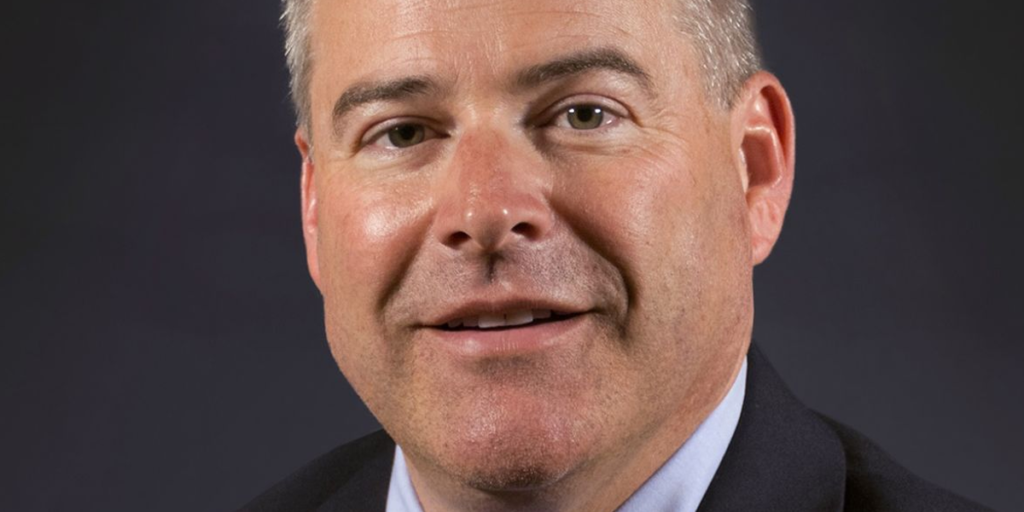
The U.S. Senate on Thursday confirmed an associate judge on the Alabama Court of Criminal Appeals to serve as U.S. District Judge for the Northern District of Alabama. U.S. Senator Richard Shelby made the announcement of Judge Liles Burke‘s confirmation. “I am proud to have voted tonight to confirm Judge Liles Burke to be a District Judge for the Northern District of Alabama,” said Shelby. “He is extremely qualified for this high honor, having served as a judge in Alabama for over a decade. I congratulate Judge Burke on this prestigious achievement and am confident he will serve our nation well.” Burke’s confirmation came as Senate leaders struck a deal to approve 15 federal, lifetime judges in exchange for recessing early through the Nov. 6 election. The Senate had previously been scheduled to be in session until Oct. 26, and the early recess will allow vulnerable Democrats to return to their home states and campaign for their seats. About Burke Burke, a native of Marshall County, was named the Municipal Judge for the City of Arab, Ala. in 2001. He held that office until 2006 when he was appointed Marshall County District Judge by former Governor Bob Riley. During his time as a trial judge, he created Marshall County’s first family drug court and started one of the state’s first domestic violence courts. In 2008 Burke was elected to a full term on the District Court, without opposition. During his years on the bench, he has served as President of the Alabama Appellate Judges Association and has been officer in both the Alabama District Judges Association and the Alabama Juvenile Judges Association. In February of 2011, Burke was named by former Governor Robert Bentley to the Alabama Court of Criminal Appeals, filling the office left vacant by the election of Judge Kelli Wise to the Alabama Supreme Court. He was elected to a six-year term in 2012 without opposition, and still serves there through his confirmation process. In addition to his experience in the courtroom, Judge Burke serves as the leader of the Marshall County United Way fund drive, City of Arab Chamber of Commerce, and the Arab Historical Preservation Committee. He is also a Rotarian and alumnus of Leadership Alabama, an officer in the Judge Advocate General’s Corps of the Alabama Army National Guard, and an assistant organist at First United Methodist Church of Arab. Burke received his B.A. from the University of Alabama and J.D. from the University of Alabama School of Law. Other judicial nominees Following Thursday’s vote, five Alabama judicial nominees, initially nominated by President Trump in 2017, have been confirmed. One 2018 nominee still awaits confirmation, and another awaits a hearing before the Judiciary Committee.
Gerald Dial: Alabama should expand Medicaid

I was born in Delta, Alabama, and I have spent the majority of my life in Lineville, working as a teacher, a coach, and as a state senator in the Alabama Legislature. I served my country in the Alabama National Guard as a Brigadier General and have a strong sense of duty for the state of Alabama. I know the joys and the challenges of life in rural Alabama, and I am committed to keeping our rural areas strong. As a retiring legislator and a former chairman of the State Senate Health Committee, I can appreciate the struggles our lawmakers face in trying to fund key state services. However, I also understand the importance of quality health care in our local communities, and I believe that by not expanding Medicaid we are missing a huge opportunity to strengthen our local economies. For years, we have used state dollars to recruit industries to locate in Alabama, and we have been very successful. We now have an opportunity to support existing health care jobs and make sure every Alabamian has access to care when they need it, and where they need it. Investing in Medicaid expansion will keep our rural hospitals open, save hundreds of local jobs, and provide basic insurance coverage to almost 300,000 Alabamians. These are our friends and neighbors, hardworking Alabamians who don’t earn enough to afford health insurance. They work in our local restaurants, in our local retail shops and build our houses. Medicaid expansion would enable them to continue working while keeping their family healthy. What happens if Alabama passes up this opportunity? More hospitals will close. Already, six rural hospitals have closed since 2011, and 88 percent of the remaining rural facilities continue to operate but are losing money every day, providing care to thousands of un-insured individuals. Many have had to eliminate services, cut staff and, if nothing changes, a number of them will likely have to close their doors. And when a community loses its hospital, it also loses doctors, pharmacies, and other providers, devastating the community not only in terms of access to health care, but in job and economic losses. I realize we don’t have all the answers on how Medicaid expansion will be funded. But I do know that for every $1 the state invests, the federal government will return $10 to the state. That’s a good deal for Alabama and one that we can’t afford to pass up. And remember, that federal funding comes from tax dollars we are already sending to Washington, dollars currently funding expanded Medicaid programs in 33 other states and in Washington, D.C. Instead of sending our money out of state, let’s invest that money in Alabama’s health care industry. We’ve got to find a way to keep our state’s health care system viable. I urge all Alabamians to find out more about Medicaid expansion and the tremendous benefit it will have, particularly in our rural areas. I’m afraid that the cost of doing nothing is too great. ••• Gerald Dial represents District 13 in the Alabama State Senate, which includes all or parts of Randolph, Lee, Cleburne, Clay, Cherokee, and Chambers counties.


